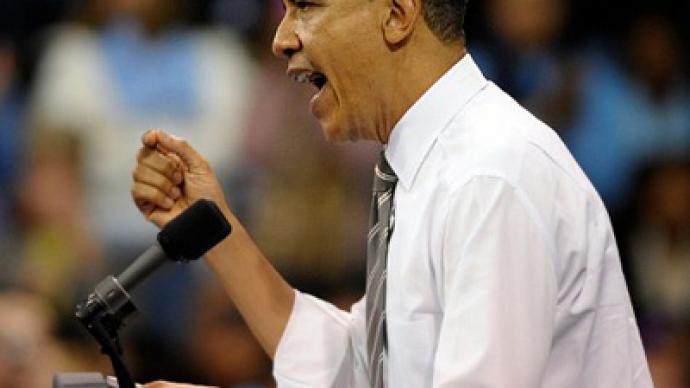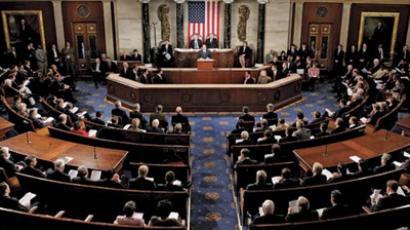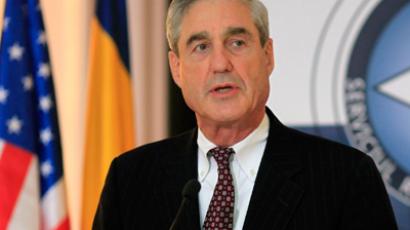Piracy vs Privacy: Obama may 'oppose' CISPA but still sign it like NDAA

The White House has officially announced that the Obama administration is opposed to the controversial Cyber Intelligence Sharing and Protection Act, or CISPA, expected to go before Congress this week. But does it really matter?
The Obama administration has formally condemned the latest Internet legislation up for vote, but this week a top White House official confirmed that the commander-in-chief’s closest officers are opposed to the bill. If Americans learned anything from the president’s under-the-table signing of the National Defense Authorization act last year though, it’s that decrees from underneath President Barack Obama can be reversed as quickly as announced.The United States Congress could vote on CISPA as early as this week, which is the next step towards sending the bill to the White House for the president to sign into law. Alec Ross, a senior adviser for innovation to Secretary of State Hillary Clinton, reiterates to the Guardian this week that top officials underneath President Obama are pushing to keep the legislation from being signed. "The Obama administration opposes CISPA," explains Ross. "The president has called for comprehensive cybersecurity legislation. There is absolutely a need for comprehensive cybersecurity legislation.”What CISPA’s supporters are asking for in Congress does much more than just implement measures to make America’s online infrastructure safe for terrorism threats, though. If approved, CISPA will let both private companies and the federal government alike infiltrate personal conversation carried out over the Internet and eavesdrop on Americans from coast-to-coast under the guise of cybersecurity.Ross adds to the Guardian that the White House is telling Congress, “we want legislation to come with necessary protections for individuals,” which, as other anti-CISPA critics will vouch for, won’t be a reality if lawmakers approve the bill this week.Despite insistence from the Obama administration though, will the president follow through with plans to push CISPA off Capitol Hill?Last year, the White House went public with plans to veto the National Defense Authorization Act for Fiscal Year 2012 as opponents of the bill and its indefinite detention of American citizen provisions caused a massive backlash among critics. In its earlier form, the White House wrote to Congress that parts of the NDAA would bring a “dangerous and unprecedented challenge to critical Executive branch authority to determine when and where to prosecute detainees,” would constrain counterterrorism efforts and undermine national security.On November 17, 2011, the White House formally announced of the NDAA, “Any bill that challenges or constrains the President’s critical authorities to collect intelligence, incapacitate dangerous terrorists, and protect the Nation would prompt the President’s senior advisers to recommend a veto.” In regards to the military custody provisions inside the NDAA, the White House added that they spawned "serious and unsettled legal questions and would be inconsistent with the fundamental American principle that our military does not patrol our streets.”The bill was approved by the president only six weeks later on New Year’s Eve.With CISPA quickly snowballing from fringe legislation to a mainstream news story and garner opponents just as quickly as NDAA, it should not come as a surprise that the president is supposedly putting his foot down over CISPA. Given how quickly the stance was changed over the NDAA last year, however, it very well could be a prime example of the president pandering to audiences yet again, especially given the proximity to Election Day.














